Revolution in times of COVID -19 – testimonies from Iraq
Conceptualization: Mohamad Blakah/Miriam Younes - Interviewing: Mohamad Blakah - Editing and Subtitling: Mohamad Blakah
In March 2019, the Iraqi government had imposed a countrywide lockdown due to the spread of the COVID-19 virus in the country. In April 2020, about 1500 cases suffering from COVID-19 were reported in the whole of Iraq. Due to limited testing the estimated number of unknown cases are probably much higher. Since the beginning of the pandemic the protesters in Tahrir Square took their own precautionary measures, as the manufacturing and wearing of facemasks, the disinfection of tents and the decision that only 20 % of the protesters are to remain in the square. Moreover, many political and social activists started initiatives to support people in need since the lockdown led to increasing unemployment, poverty and an economic recession due to dropping oil prices. Since the end of April, protesters launched the hashtag “we promise the revolution will return”, meaning that after the end of the lockdown protesters will return to the streets to demand their political, social and economic rights and the fall of the political system. We asked several political activists and protesters to describe to us diverse impacts of the corona-virus on the current situation in Iraq.
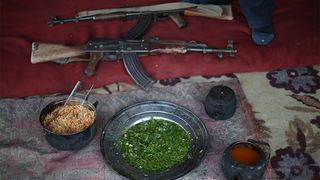
Frontline of the National Highway Damascus-Homs, Ramadan 2017: A meal prepared for four fighters of the FSA.
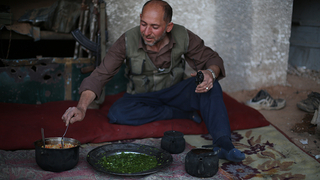
Frontline of the National Highway Damascus-Homs, Ramadan 2017: Abou Mohammad, a fighter of the Free Syrian Army, sits on the spot where that marks the borderline to the Syrian Regime forces.
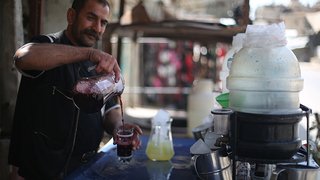
Douma, the Great Mosque: Abou Mahjoub is selling juices made from dried fruits that he stored before the siege of Eastern Ghouta.
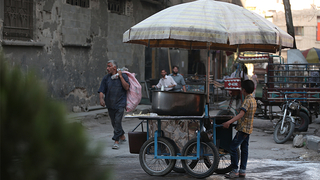
Douma, Al-Quwatli Street, Summer 2017: Houssam sells corn from a vending cart to support his family.
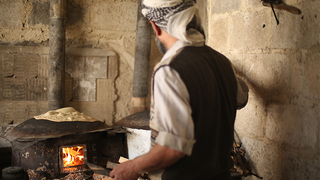
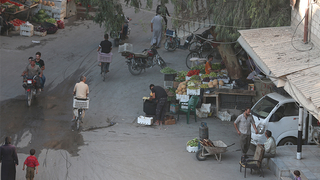
Mesraba Souq, Summer 2017: Shortly after, early 2018, the Souq was completely destroyed.
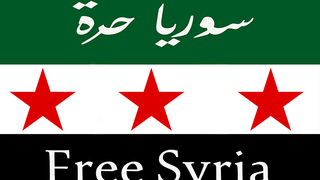
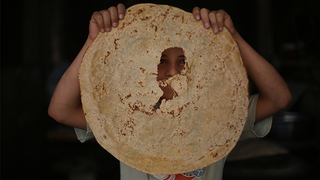
Douma, Winter 2018: A child holds a loaf of bread in front of his face – a little bit of bread is a little bit of happiness.

Douma, Al-Gelaa Street, Summer 2015: Tea vendor Abou Kasim shortly before he was killed in a cluster bomb attack that hit his small store.
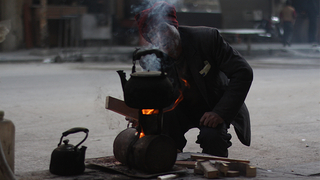
Douma, Al-Quwatli Street, Winter 2016: Abou Mahmoud is making tea, sitting on the street under shellings of cluster and vacuum bombs. His son was killed in the beginning of 2018 during the last attack on Douma. His whole family suffered burn injuries from napalm bombs dropped over the city.